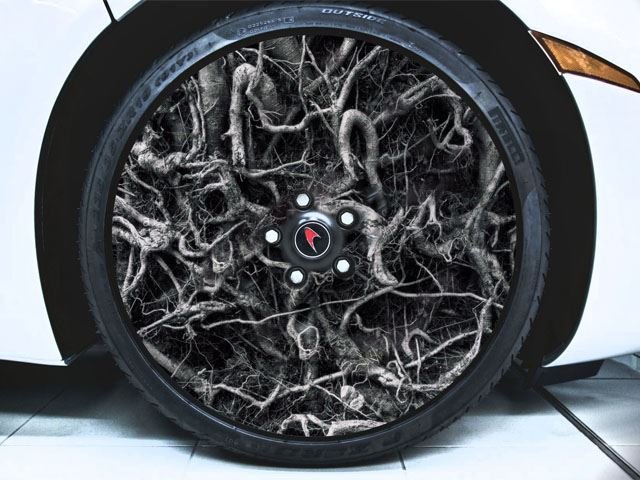McLaren Goes Back To Its Roots To Create Cutting Edge New Wheels

By roots we mean actual roots, the very same stuff that keeps trees standing upright and fed with water so they can convert all the bad gasses we car lovers produce into breathable air. After all, there's no better designer in the universe than Mother Nature herself. Perfectionists won't be fans of the plans though. Things in nature are rarely symmetrical, and McLaren's plans are no different, says Motoring.


While McLaren has gone green with the P1, this borrowing from nature has nothing to do with being eco-friendly, but instead the copying of intricate root patterns of trees in the design of new, lightweight wheels. Imagine irregular and mismatched spokes on a wheel, a sort of perfectly round mess, and you probably have the exact design in your head. The look will be interesting, that's a guarantee. Even with the weight saving possible, I'm guessing many buyers will opt for an extra set of "normal" wheels just in case. On the plus side, cheap Chinese copies aren't likely to ever be seen and original ones won't be found on some air ride-kitted Golf in Europe.
The no copying won't be due to the odd design, it will be more in the structure and the weight distribution. Some serious magic needs to happen to get a wheel with unmatched, bendy spokes to safely bear load and balance perfectly, a non-negotiable for a car capable of over 200 mph. On a recent visit to Australia, McLaren's Frank Stephenson commented that he thought wheels of the future would be as I've described above. As to why this would happen, he told Motoring: "What you get is very curvy or very bent spokes. And what that allows you to do is when the wheel gets hit, instead of the impact going straight to the center of the wheel, it dissipates much sooner.


"So you can make the spokes a lot lighter, a lot thinner. Then, what you need to do is counter-balance the wheel, obviously, but you can do that behind the spokes. So what you have is a wheel with all different-size-looking holes in the wheel. They're very unusual looking; it's a lot lighter, a lot stronger." It's a bit odd that one of the most beautifully designed cars ever made would be fitted with wheels that don't flow with the rest of the design work, but I guess when it's a case of function over form aesthetics go out the window. At least they're not using actual roots to make these new lightweight wheels - that wooden work.


Related News


